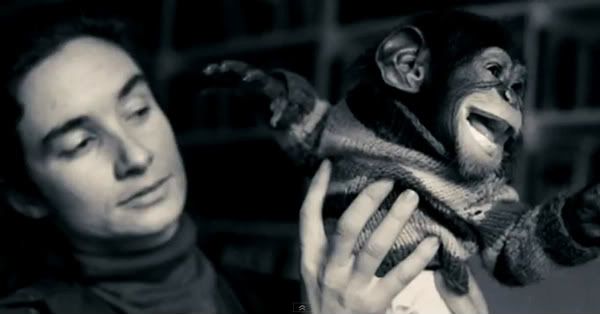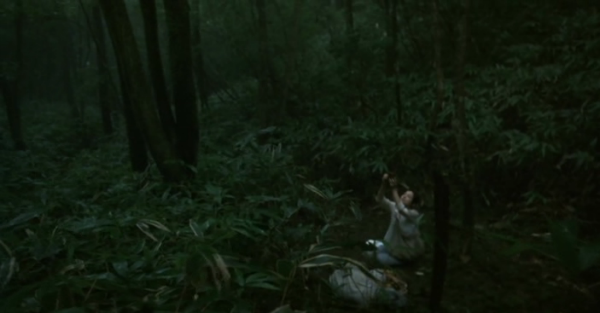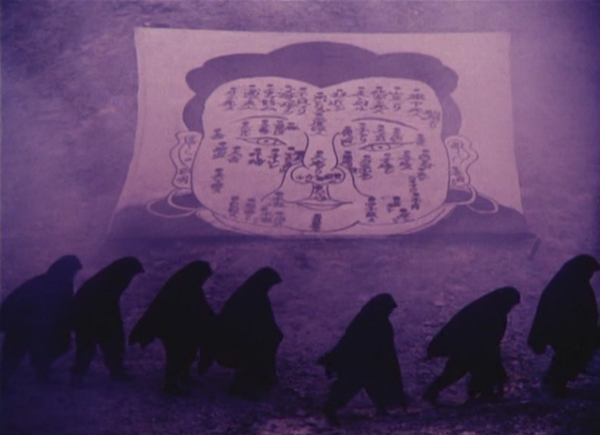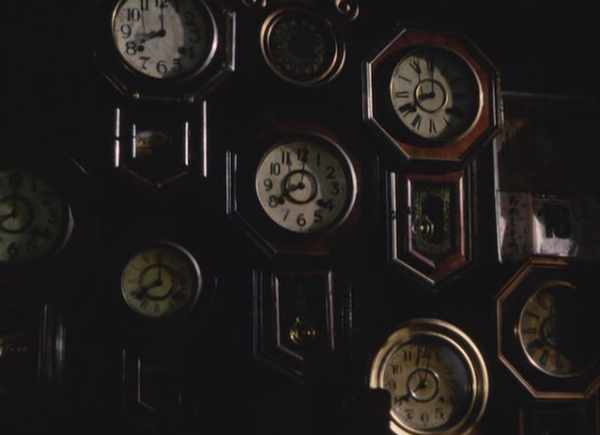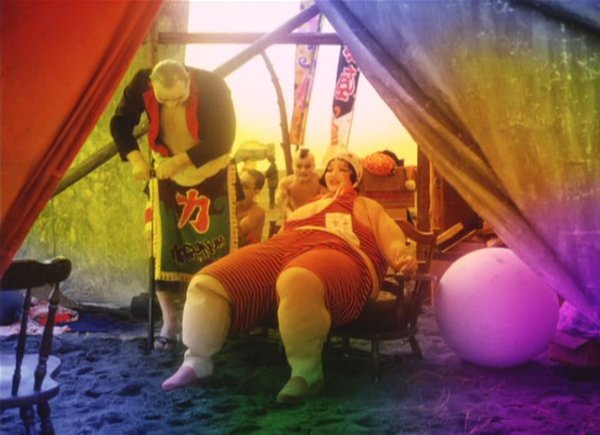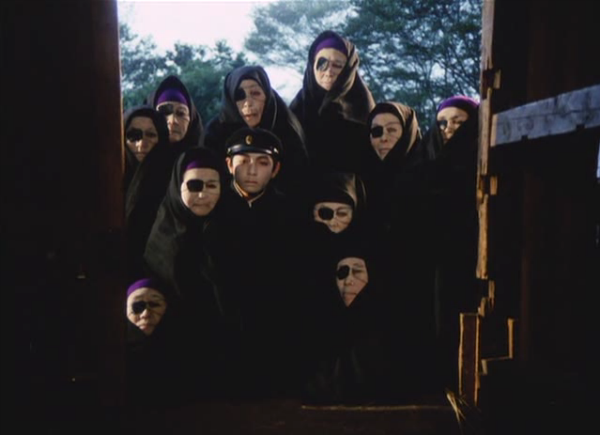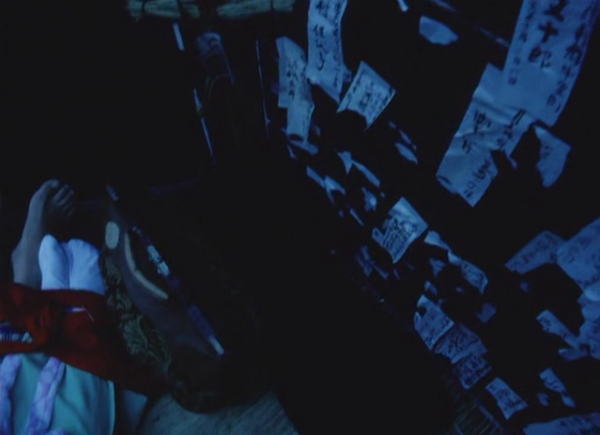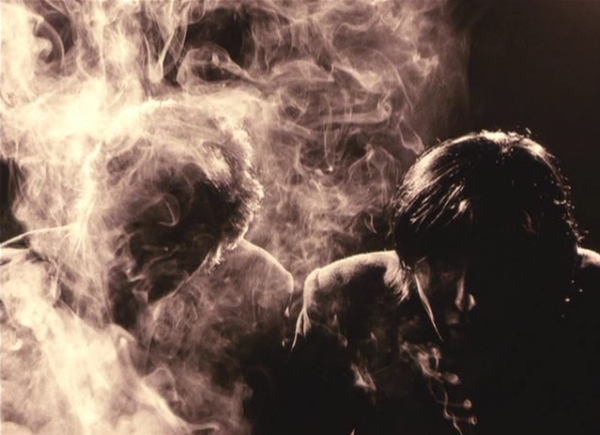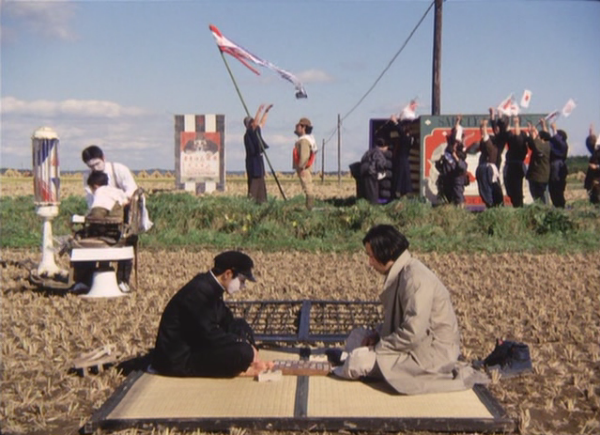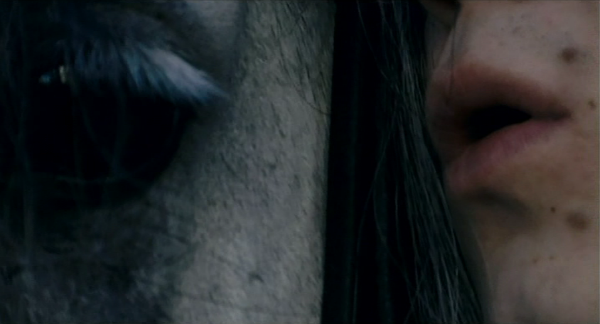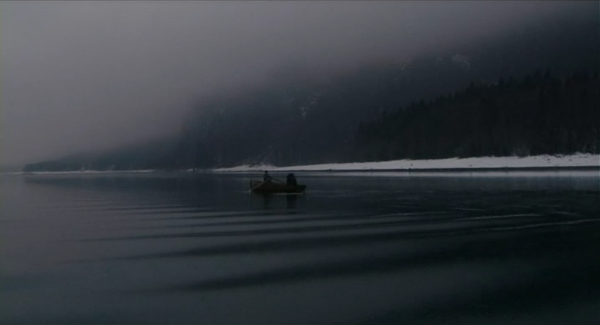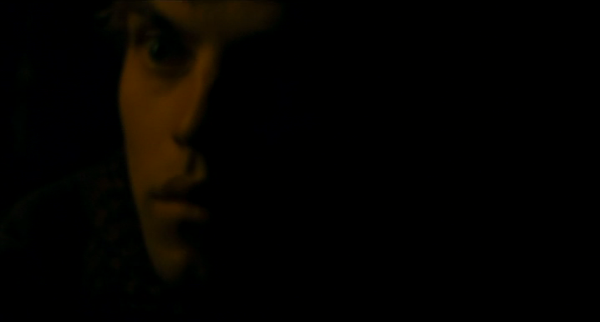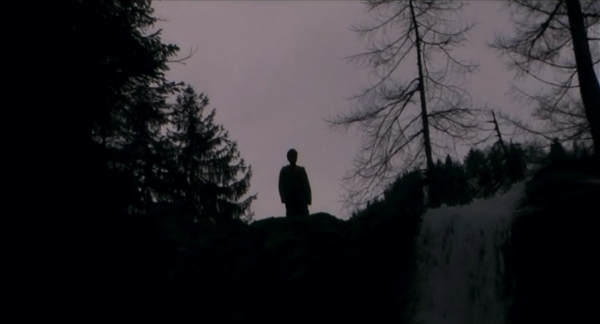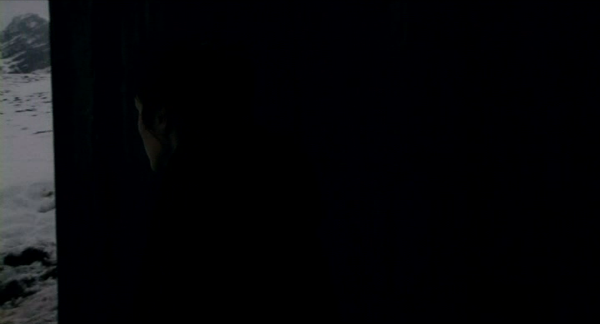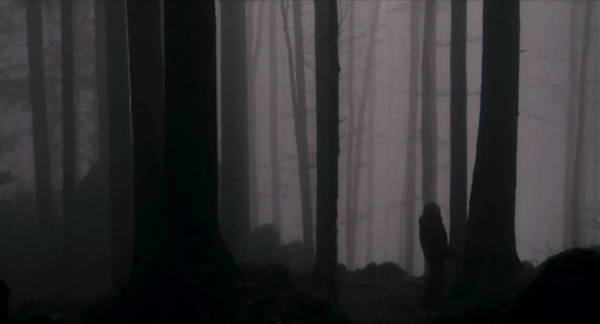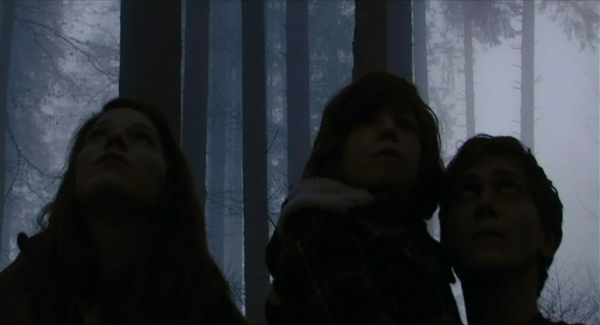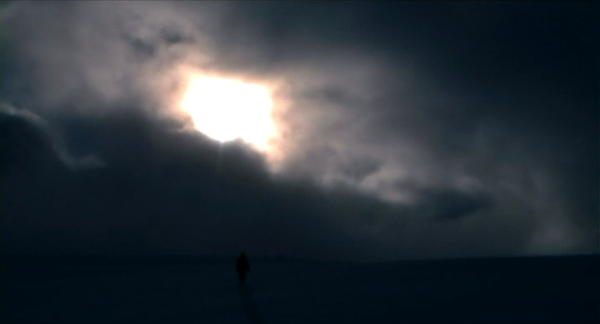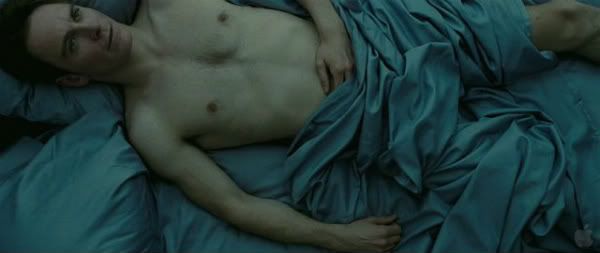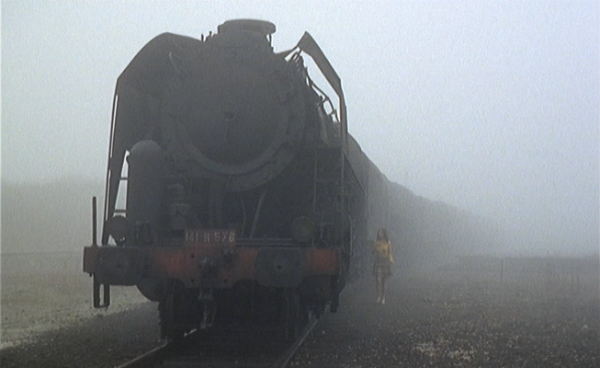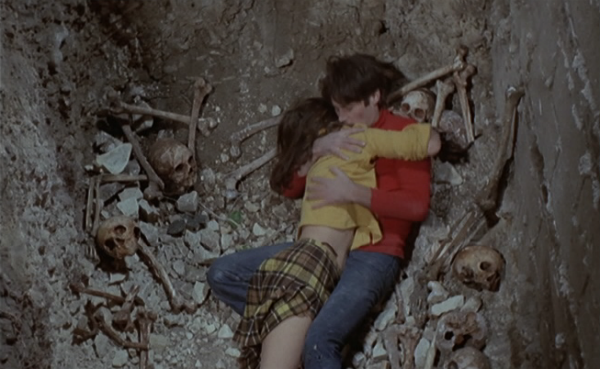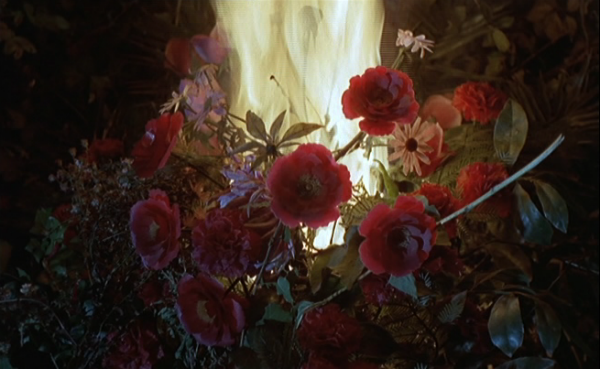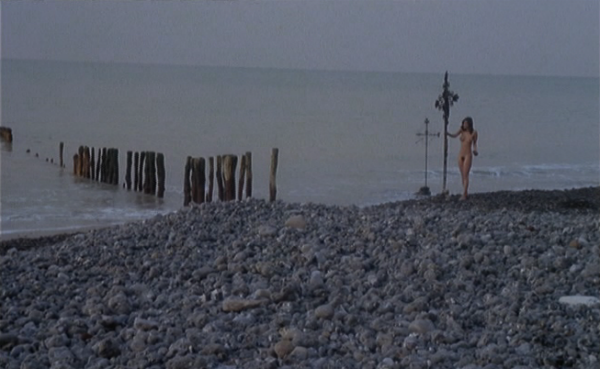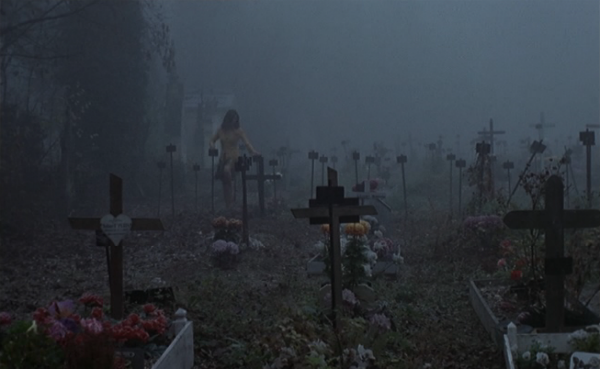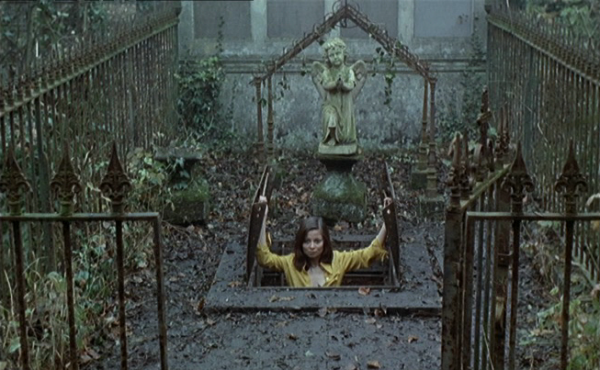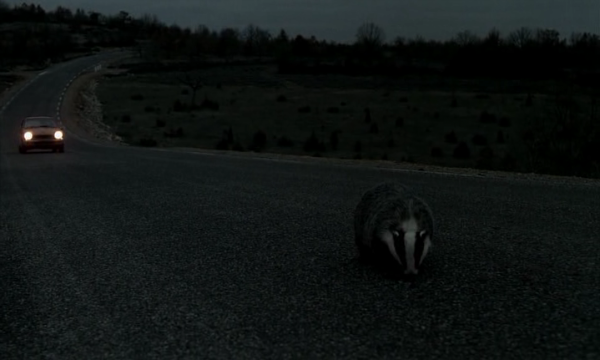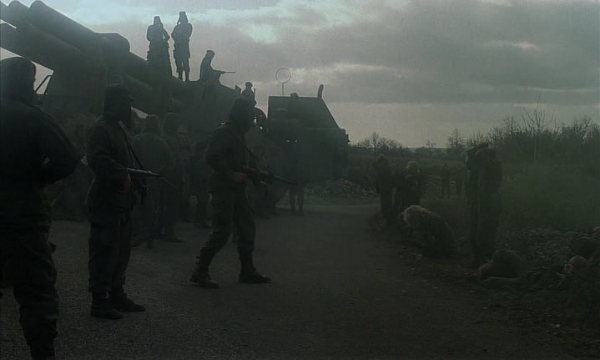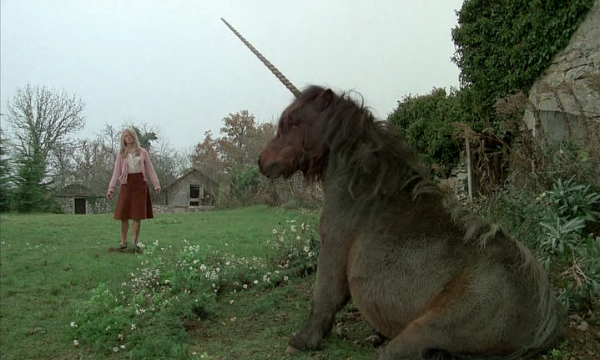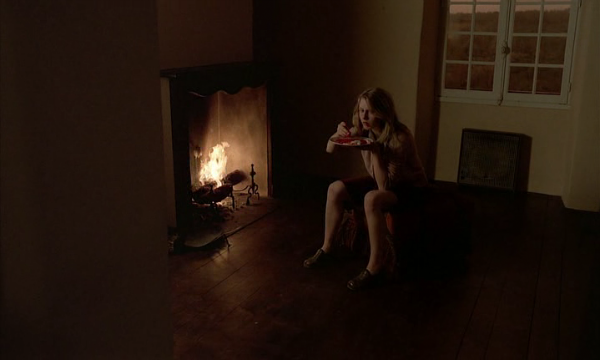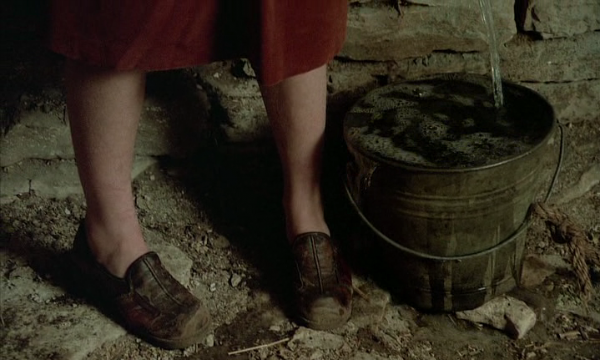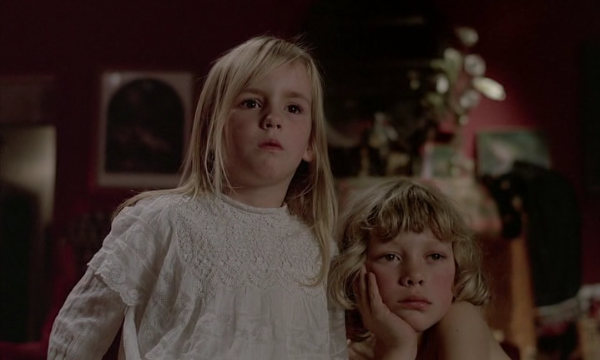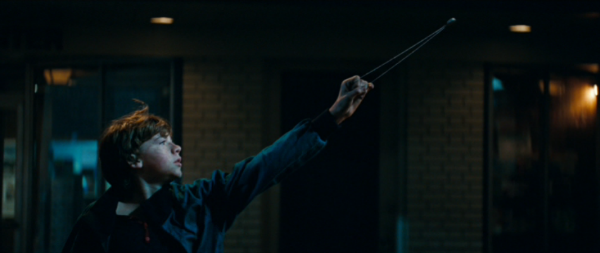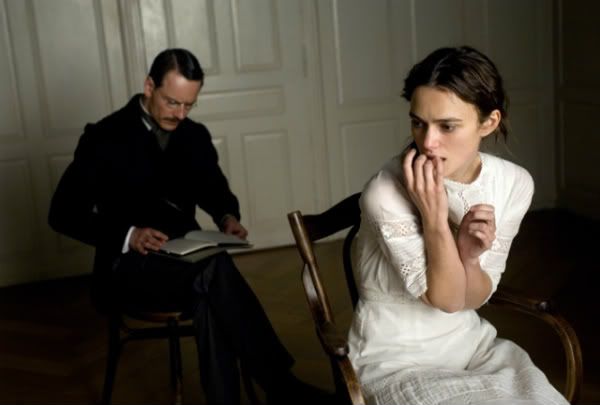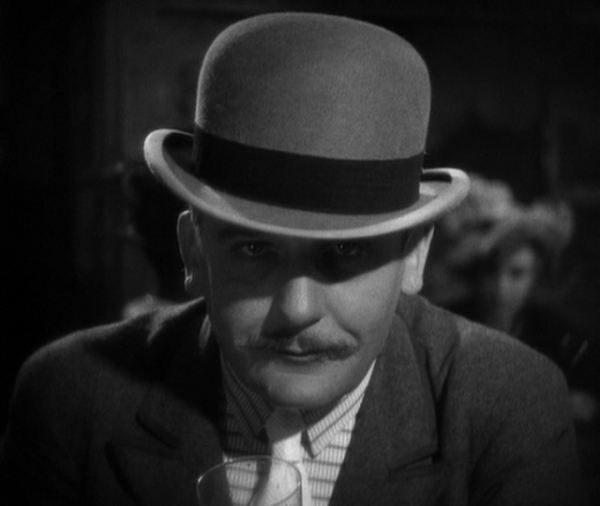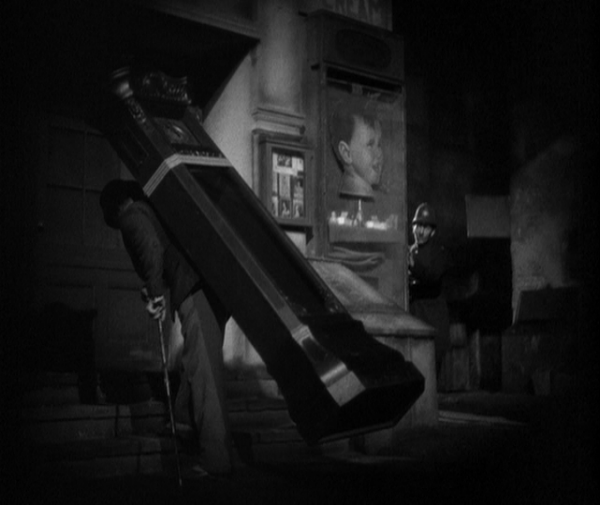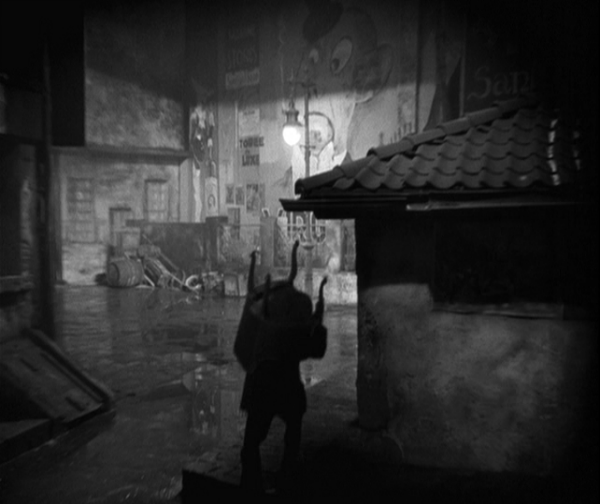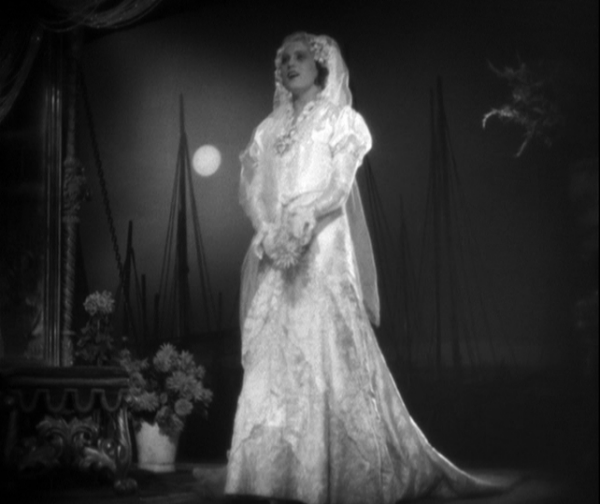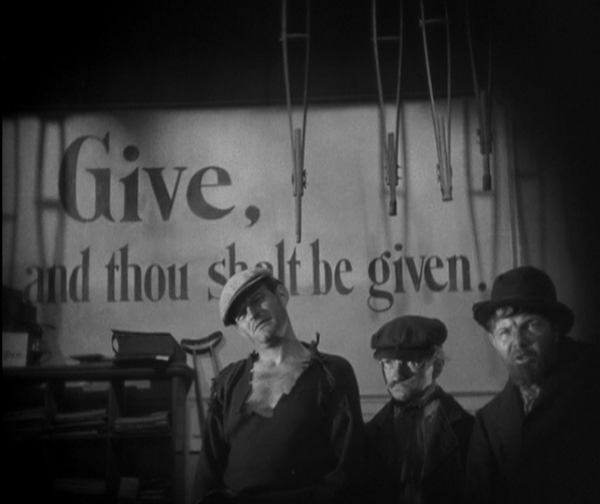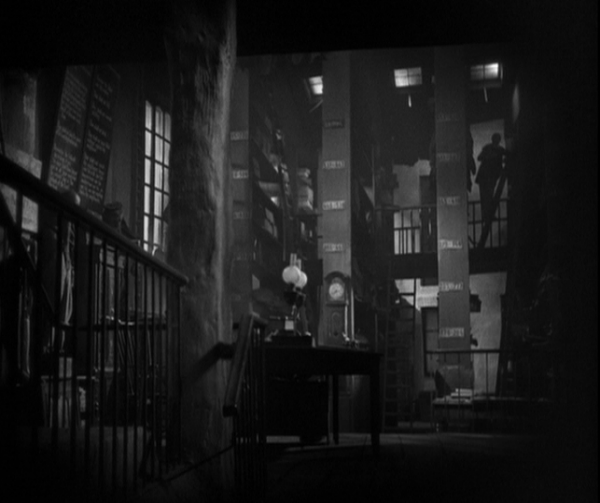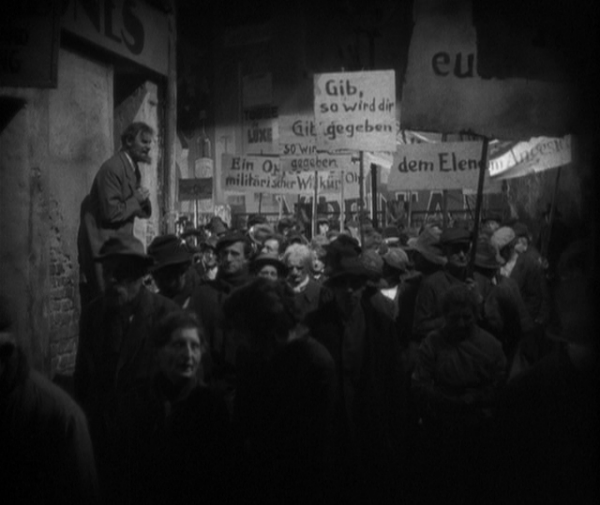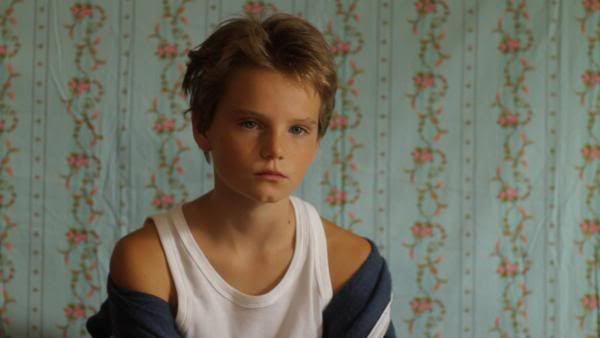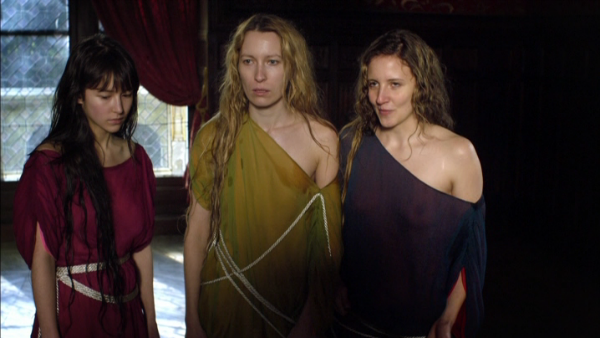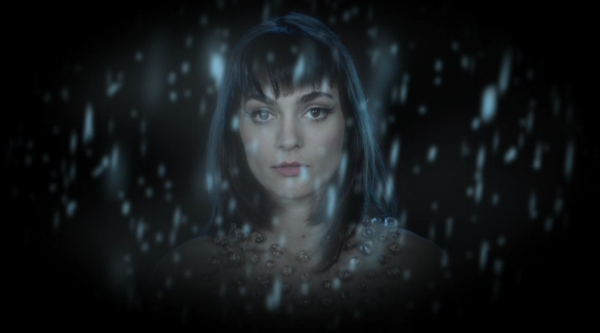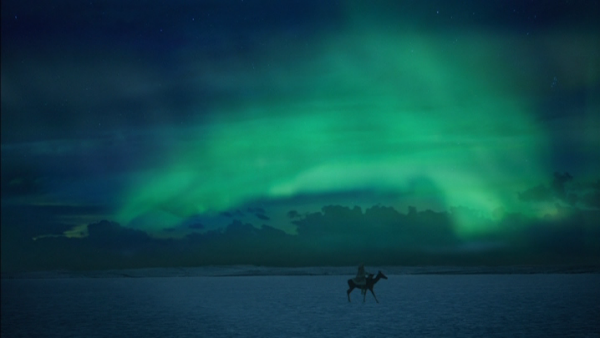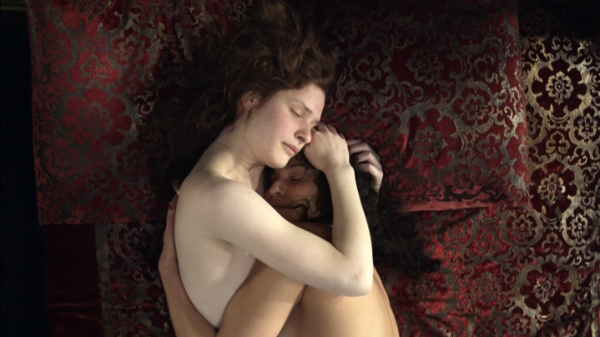Notre Musique/Our Music (2004) - Godard
Part essay, part narrative, part lecture, this short elegy to Europe is perhaps the most definitive culmination of all Godard's work I've seen so far. Taking cues from Dante's Divine Comedy, the film is in 3 parts: Hell, Purgatory and Paradise (first and last parts are 10 minutes or so and Purgatory is the longest and the meat of the film).

The first ten minutes is rapidly cut reels of horrors of war- both real and imagined (clips from Hollywood movies) and in both black & White and color. Colors are wildly distorted into almost an abstraction.
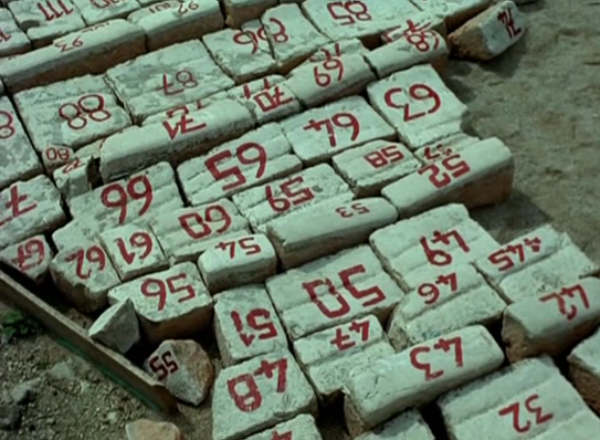
Set in bullet riddled Sarajevo in winter, Purgatory mainly concerns the Israeli/Palestine conflict. Judith Lerner (Sarah Adler), a journalist from Tel Aviv is in town for a literary conference where Godard (as himself) is set to give a lecture on image/text relationship. Like a tourist in a new city, Judith is constantly visible taking pictures in the war-torn but now reviving city. While interviewing and talking to many people- a Palestinian poet, Spanish architect and so on, who appear as themselves, she is there to be assured/bare witness to, that a reconciliation is possible between bitter enemies somewhere, that the bridge (the famed Mostar bridge, built by the Ottomans in the 15th century and had been standing the test of time until was destroyed in the Bosnian War) can be rebuilt.
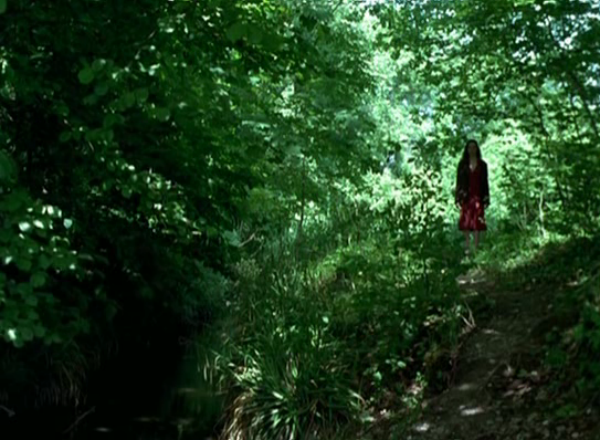
Then there is Olga Brodsky (Nade Dieu), a Russian Jew, planning to off herself in a sensational manner in the name of peace. In the Paradise part of the film, Olga walks through the green forest and ends up in water's edge where it is heavily guarded by American GIs.
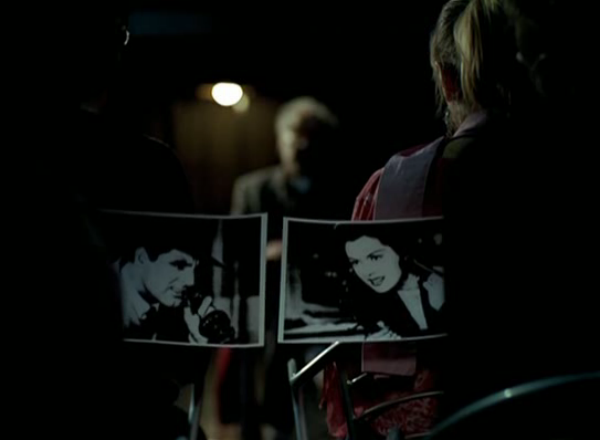
Godard plays with complex ideas through series of images and sound. The film devotes considerable amount of time to Godard's lecture on misinterpretation of images. There is light then there is dark. There is a shot, then there is a reverse shot. As usual, this dichotomic world view that has been consistent throughout his career is pronounced. Similar images can contrast each other side by side but an image without context can be misleading.
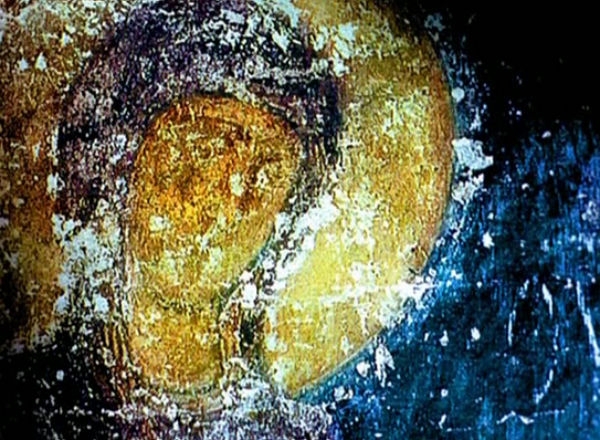
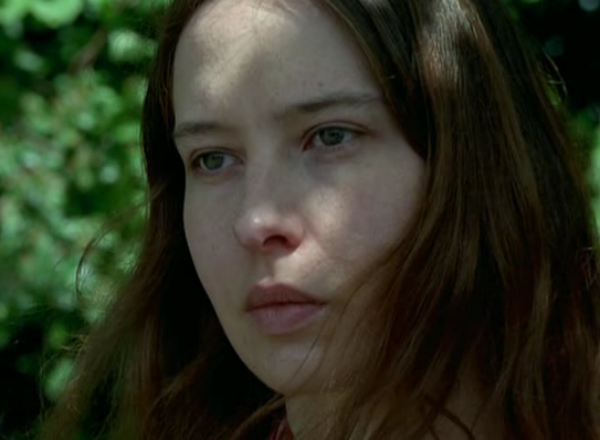
The two women- Judith and Olga (both rather plain looking and not particularly noticeable) are mirroring each other. So are damaged, faded fresco of Saint Mary and Olga. The most devastating/hopeful image in Notre Musique is not of a pile of dead bodies or Mostar but close up of Olga's face at the end.
I have to admit that seeing a Godard film requires a bit of effort and get-used-to (visually, since he is not going to give you traditional looking beauty shots). Sometimes his usual heavy Euro-centric references get in the way of viewing. It also feels like a visual literacy class, albeit an exciting one.
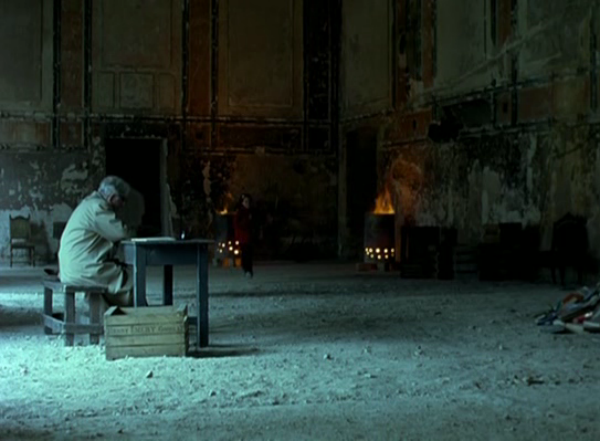
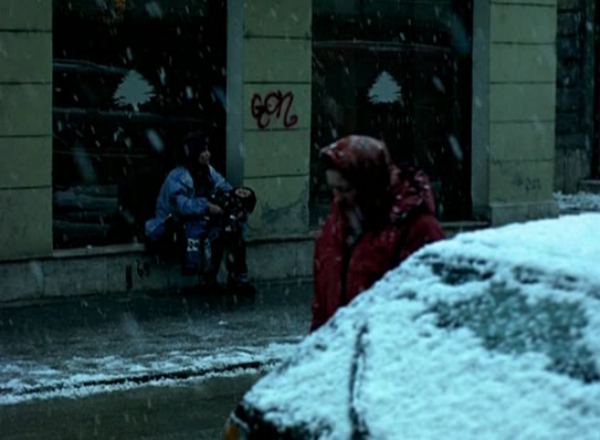
Notre Musique is a serious film. His image association games don't feel like tricks. Gone are his youthful glee and silly satiric humor that has been generally perceived as reductive and contradictory, that alienated many filmgoers over the years. The film doesn't give the audience any easy answers. Godard merely suggests that there are things that need to be investigated further: what you can see is not necessarily the truth. Then I realized that Godard has always been paying the highest respect to the audience- to think for themselves. It's also the most non-combative and relatively easy-to-digest Godard film I've encountered so far. Also it's thrilling.
Only misstep (if I call it that) I consider is the appearance of American Indians. The idea of imperialistic America is pretty well pronounced throughout all JLG films. But I find the inclusion of them in the streets of Sarajevo a little more than distracting. Sure they are underrepresented and their stories seldom told. But it feels like harkening back to his old silly self in otherwise somber film.
